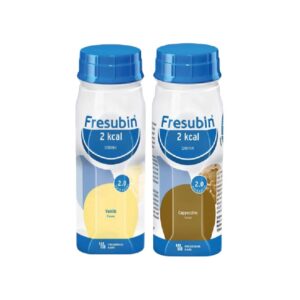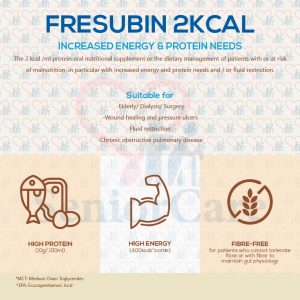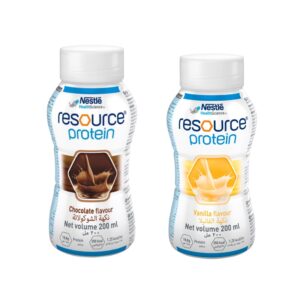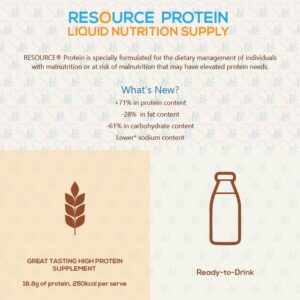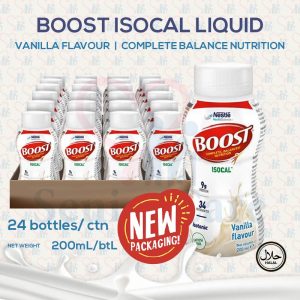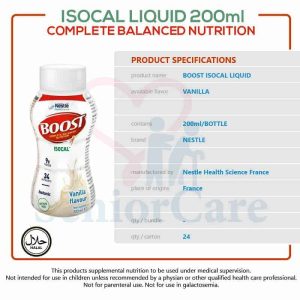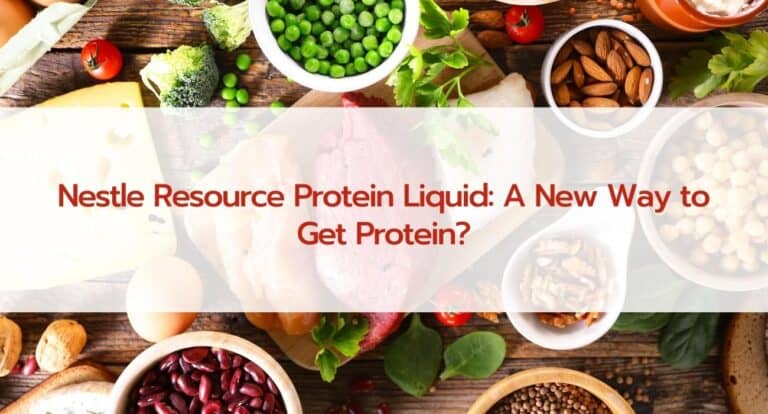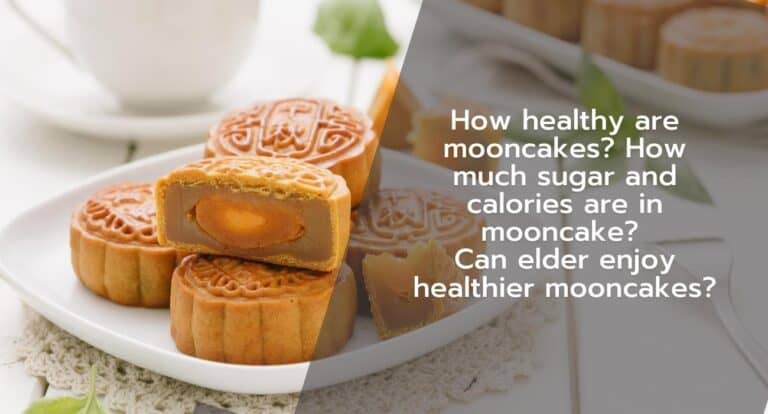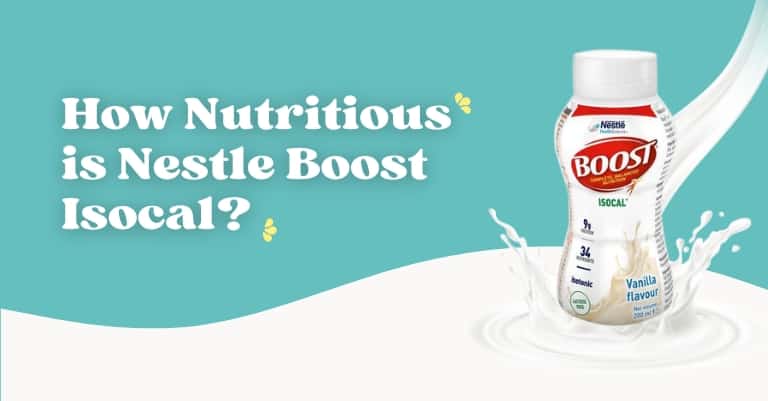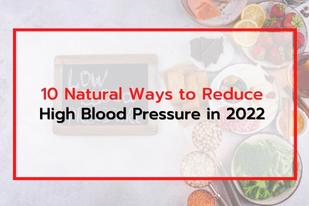How Is Malnutrition Treated in the Elderly?
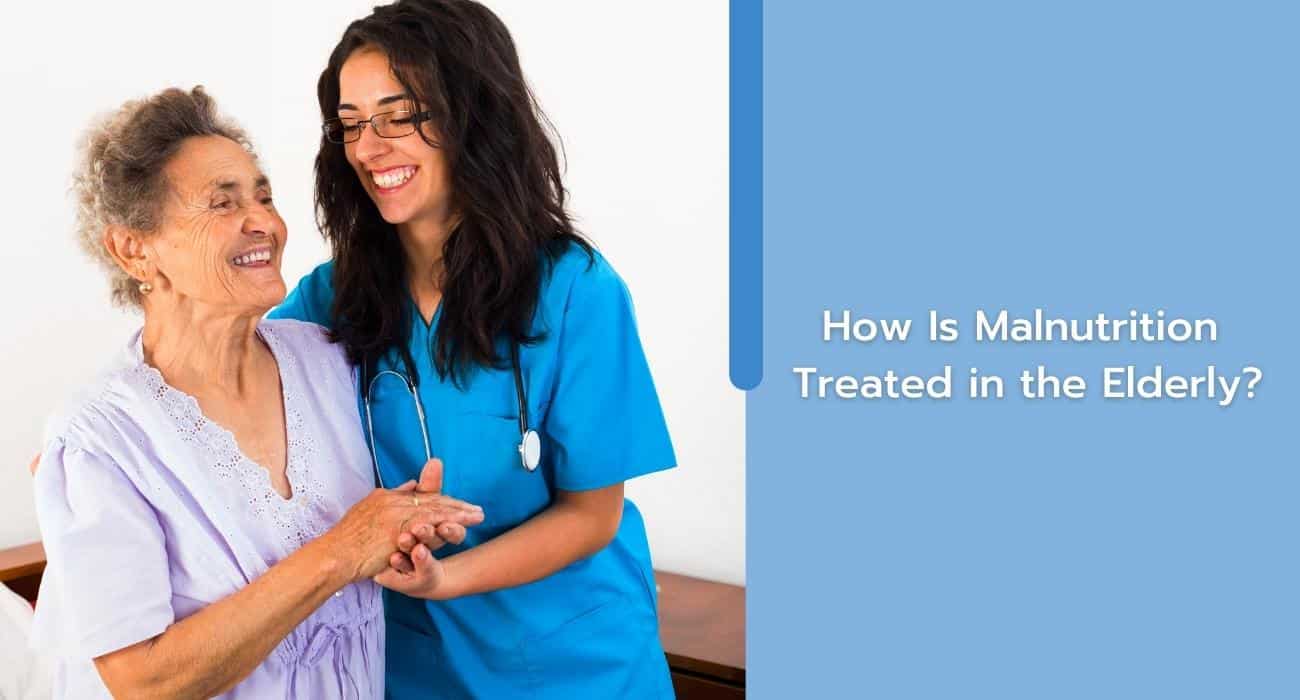
Contrary to held belief, malnutrition doesn’t only affect children. Senior adults also experience it, which is generally the result of poor eating habits. In fact, 80% elderly population is at risk of malnutrition in Singapore. And this affects their mental health, physical health, and daily lives.
Yet, there are specific measures people can take to fight malnutrition in the elderly. Eating and drinking healthy foods would help in curing malnutrition. In this article, we will know what malnutrition is, why it affects adults and practical ways to treat malnutrition in the elderly.
What is Malnutrition in the Elderly?
Malnutrition happens when a person’s body lacks nutrients such as minerals and vitamins. These vitamins and minerals help our organs and tissues to develop and function.
Undernutrition can also be classified in persons with a healthy weight and obese. Moreover, this health issue happens when their meal doesn’t have specific vitamins and minerals. Also, some people like to eat food without healthy calories, which gives few benefits. As a result, it offers people lower protection from diseases.
Elderly patients with malnutrition decline in health and are more prone to disease. Many seniors also have other health problems that make detecting malnutrition difficult. Having issues with weight loss, weakness, or losing interest in food might be signs of malnutrition.
Not getting enough nutrition is complex for senior citizens. With a lack of proper nutrients, seniors are at a higher risk of many health issues, including but not limited to
Weight loss without the intention of losing it.
- Weight loss without the intention of losing it.
- Fatigue and tiredness
- Slow recovery from wounds and surgeries
- Frequent hospitalizations
- Fractures and injuries due to fragile bones and lower muscle mass
- Depression
- Memory lapses
- Infections
- Anemia
Why Do Older Adults Suffer from Malnutrition?

In older adults, malnutrition is due to several factors, which are
- poverty
- social isolation
- cognitive impairment
- loss of appetite
- increased use of prescribed medications
- difficulty chewing
- swallowing
Often, there is more than one cause for malnutrition in older people. For example, a person may have less income and buy cheaper less nutritious food. They may also have difficulty cooking and eating due to depression or immobility. Besides, other medical conditions can affect their ability to absorb nutrients. Conditions such as dementia or gastrointestinal illness are common examples.
A poor diet isn’t the only cause of malnutrition among the elderly. Aging itself causes changes such as decreased appetite caused by a loss of taste and smell senses. Because of this, seniors do not get enough nutrition from their diets, even if they consume enough calories.
Certain medications can also cause side effects that interfere with nutrition. For instance, some drugs can cause nausea or constipation, affecting seniors’ ability to eat. Talk to a doctor if you think medication side effects affect their nutrition.
3 Things Elderly People Can Do to Fight Malnutrition
Luckily, there are ways to avoid being underweight, overweight, and malnourished. Here are three steps they can take.
1. Get the right amount of nutrition.
2. Be active
3. Go for supplements
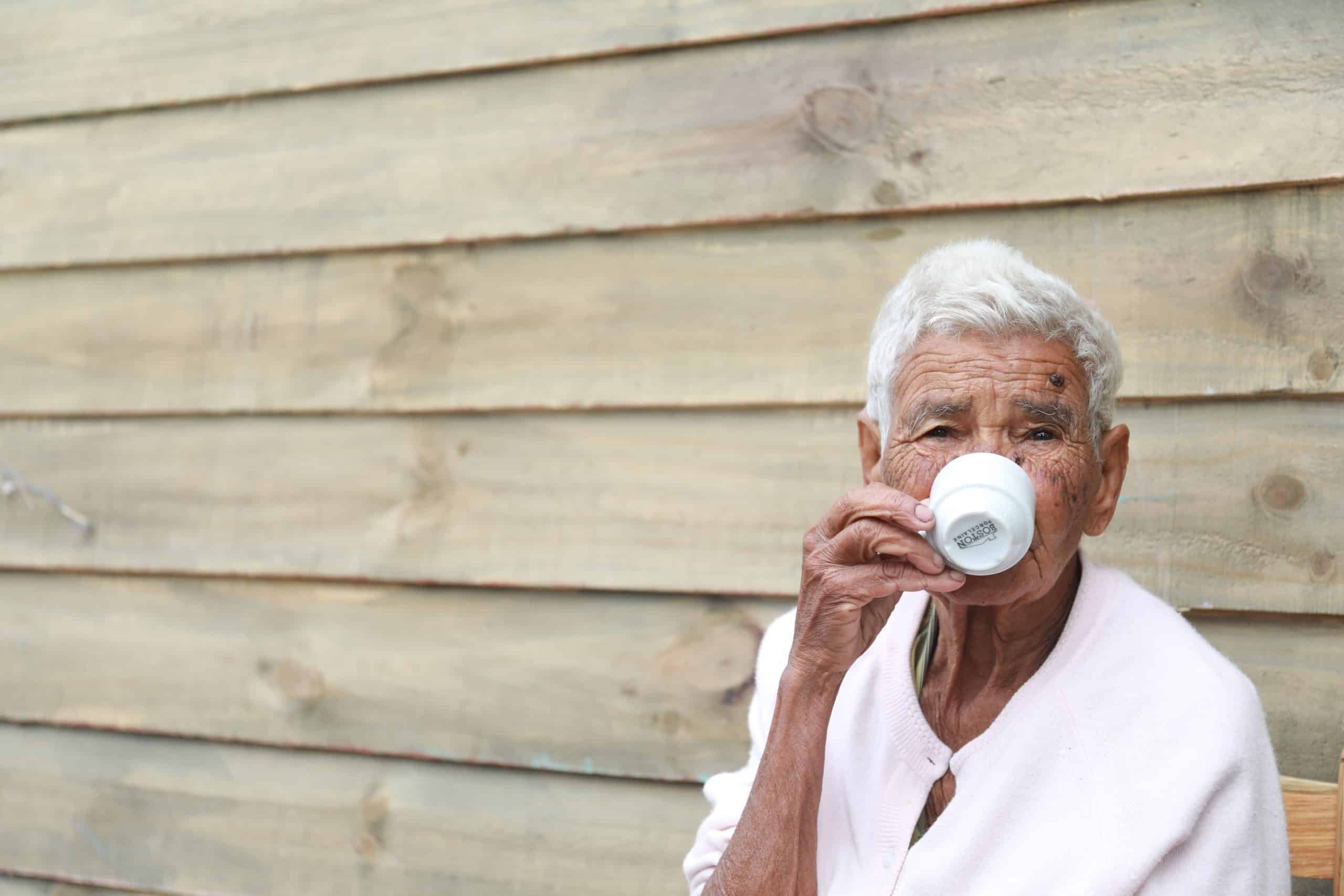
1. Get the right amount of nutrition
Have a healthy diet management plan to give more nutrients to their body. Help older people to eat more nutritious foods. Assist them in limiting the number of unhealthy and salty foods. Also, swap unhealthy foods for healthier alternatives. Here are the dietary suggestions for the elderly with malnutrition.
Protein
This macronutrient strengthens and rebuilds body organs and tissues. It plays an essential role in a person’s body. Protein can also be found throughout the body in skin, hair, muscle, and bones. Foods high in protein are lean beef, beans, milk, cheese, eggs, and seafood.
Calcium and Vitamin D
Adults over 70 need more calcium and vitamin D to strengthen bone health than those under 70. Vitamin D absorbs calcium to help our body, which means it is necessary to maintain our bones. According to a study, calcium and vitamin D may protect individuals against illnesses.
Choose calcium-rich foods and drink three low-fat dairy products daily. Some excellent sources are the following.
- Calcium-fortified cereals
- fruit juices
- dark green leafy vegetables
- soft-boned tinned fish
- Calcium-fortified plant-based beverages
- fatty fish, eggs, and fortified foods and drinks
B12
Vitamin B12 is for the development and functions of nerves, blood cells, and the brain. This nutrient is in fortified cereal, lean meat, and fish.
Fiber
Regularize your diet with fiber. Fiber helps absorb food, regulates blood sugar, and manages weight. Dietary fiber may also help lessen your risk of heart disease, cancer, and Type 2 diabetes. Whole grains, beans, peas, lentils, and fruits and vegetables are fiber-rich foods.
Potassium
Potassium is a necessary mineral for our health. It helps our muscles contract and nerves to function. Getting enough potassium and lessening sodium (salt) may help lower blood pressure. Potassium is in fruits, vegetables, legumes, and low-fat or fat-free dairy. On top of that, prepare foods with minimal salt. You can use herbs and spices as an alternative.
Healthy Fats
Nuts, seeds, avocados, vegetable oils, and seafood have polyunsaturated and monounsaturated fats. Lower your risk of heart disease by eating low-fat foods, which are:
- sweet potatoes
- legumes
- beans
- leafy green vegetables
- mushroom
2. Be active
Encourage physical activity. Your loved one’s bones and muscles can benefit even a tiny amount of exercise. Letting them try simple aerobics, dancing or walking can help. Also, participating in a fun exercise session gives them more fun than feeling tired. Be sure to consult a doctor to make ensure their safety.
3. Go for supplements
Senior adults can get important benefits from supplements. Supplements give enough nutrients to the body and lower its risk of health problems. Usually, these are in tablets, capsules, powder, and liquid form. Giving supplements in liquid form or shakes is suitable for the elders. But, these solutions should have a doctor’s guidance. Always consult a doctor before giving supplements to senior adults to avoid complications.
What Is the Role of Protein in Nutrition?
Malnutrition in adults is also called protein-energy malnutrition (PEM). The problem is an imbalance of energy intake versus use and an insufficient nutritional intake to cover both processes.
Protein is one of the macronutrients that build and repair tissues in the body. Eating food with protein repairs damage to muscle tissue, especially after an exercise. During a workout, our muscles tear, and protein is needed to restore and maintain it.
As we get older, the need for protein also increases. Protein is vital in our meals as it lets us be healthy and provides essential support for our bodies. To avoid loss of muscle mass as we age, we must consume essential amino acids in food or supplements.
Chemicals in supplements, according to researchers, could help gain muscle mass and strength. Researchers show that it improves physical function, particularly leg strength and grip strength. Along with regular exercise, these bodybuilding supplements can enhance muscle protein synthesis.
Supplement for Elderly to Fight Malnutrition
Oral nutritional supplements provide the elderly with enough nutrients and a taste they enjoy. The right nutritional supplements can help them with sufficient protein to gain muscle mass. Here are our top picks that senior adults can take:
Fresubin 2kcal Liquid Nutrition Supply
Fresenius Kabi Fresubin is complete oral nutrition with high protein and energy. It is for the dietary treatment of patients with malnutrition. And patients with chronic wasting illness, peri-operative and post-operative patients.
Fresenius Kabi Fresubin is a liquid drink with two flavors; vanilla and cappuccino. This drink has vegetable oils, minerals, vitamins, carbohydrates, and trace elements. Moreover, it contains milk protein, soya lecithin, potassium carbonate, sodium chloride, and iron pyrophosphate.
In a 200ml bottle of Fresubin, it has 400 calories. This is the right amount of effective dose for improving patient outcomes.
Fresubin is known for:
- Studies have shown that adding 20 grams of protein per protein bottle (20% of the total calories) helps the body process nutrition.
- A good option for those who cannot tolerate or are allergic to fiber
- Gluten-free and lactose-free.
NESTLE Resource Protein for Resource Plus Vanilla Chocolate Nutritional Liquid
For those who need more protein, NESTLE Resource® Protein is an ideal supplement. Each serving gives 30 percent of daily recommended protein consumption. Furthermore, the 250g of 28 percent carbohydrate content boosts energy. And the 28 trace vitamins and minerals in it keep your body healthy.
This oral nutrition supplement is suitable for the patient’s dietary management for malnutrition, with a delicious taste and a high-calorie supplement. It comes in delicious vanilla and chocolate flavors. Likewise suitable for children aged four years and above.
The recommended daily intake of this product is up to three packs per day. Some can take up to five packs for sole nutrition or as recommended by the doctor.
Boost Isocal – The Supplement for Malnutrition
Another trusted drink supplement for increasing muscle mass – the Boost Isocal. The Boost Isocal is a complete liquid diet that gives well-balanced nutrition.
It is also an isotonic drink that contains whey, casein, and soy protein. Blends to help build and maintain lean muscle mass. Designed for those who have increased nutritional needs or are at risk of under-nutrition. Whey, casein, and soy protein isolates make up the unique protein blend in BOOST® IsocalTM. With protein, muscle tissue growth and the building will be maintained and repaired.
The upgraded Boost Isocal keeps its formula key benefit created for tolerance. And by retaining an osmolality low of 330mOsm/kg. It also has ultra-trace minerals that meet at least 100% of the RDI for vitamins, minerals, and proteins in 2000 calories (1890ml).
To put it another way, BOOST Isocal sustains a healthy level of oxygen in your blood, proteins, minerals, hormones, etc.
When to See a Physician
Maintaining a nutritious diet from childhood to adulthood is necessary to keep a healthy life. For the best result, the elderly must schedule a routine screening for their health. Especially when there are sudden changes in appetite, weight, and other health concerns, consult a physician right away.In case there are still things you want to know. We have more health topics you can read on our blog. For other helpful nutritional supplements for elderly people, visit our main shop SeniorCare.

